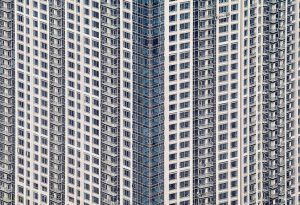
“Building on disappearance Hong Kong architecture and colonial space” is mainly about the issue of the identity of Hong Kong as a city being disappeared and the writer argues the issue through economic, cultural and political aspects. The highly dense population and the housing problem makes all the building type should only be functional so, consequently, all the buildings are drab and tall. It has become the main reason for killing the potential of designing various building styles and the other characteristics of the city have been disappeared. It shows “market erodes place” that the building type is controlled from the economic point of view.
Also, the writer mentions “preservation” of the historical buildings in Hong Kong actually destroys the culture and the meaning of the historical background because they always keep the façade of traditional architecture but interior programs are all changed and removed such as the Flagstaff House Museum of teaware.
I totally agree with these arguments that economic and political problems make Hong Kong becoming a lack of identities. The market has controlled the similar residential building type and all the housing estate has become a machine for people to live without any characteristic. It has restricted the potential of developing other types of architecture. Meanwhile, the way of how Hong Kong preserving the historical architecture also destroys the historical background of the building because all the original programs have been removed and the interior has become an exhibition. However, the façade of the historical building is not designed for exhibiting purpose so there is no connection between the functions and the façade. This ambiguity of design makes the culture being destroyed. To conclude, the essay clearly shows the problem of Hong Kong that the identity of the city is disappearing and it is important to develop a unique representation of the city through architecture in order to create a better visual image of the city.
By Tsang King Yeung (UID: 3035495400)
I appreciate your enthusiastic statements and your personal reflections about this global city. Yet, careful with quick suggestions, this is only one chapter of a broader, and much more complex investigation to Hong Kong’s vital, ever changing identity, not the disappearance of it. I would recommend you to read the whole book to get a better sense what Abbas means by the ‘politics of disappearance’.